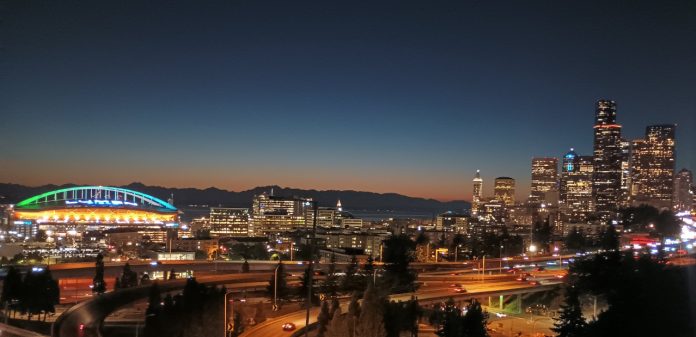
Climate change and global warming must join safety, homelessness, and housing at the top of the City’s agenda.
In the first Seattle City Council meeting of 2024, City Councilmembers stated their belief that social, racial, and economic justice for the disadvantaged is a moral issue, which must be addressed by city policy and action.
Global warming is also a moral issue. Right now, climate change raises fundamental and monumental moral issues involving intergenerational justice.
- None of us wishes for our children and grandchildren to have global warming of 2.5 degree Celsius by 2050 or sooner without urgent climate action.
- We do not wish upon them 2.5 degrees C of sea level rise and storm surge resulting in uninhabitable, low-lying countries.
- We do not wish upon them uninhabitable coastal cities, including Boston, Miami, New Orleans, and Houston.
- We do not wish upon them severe droughts and extreme storms with crop failures and mass hunger.
- We do not wish upon them extreme heat waves that kill hundreds of thousands from heat stroke.
- We do not wish upon them mass migration by those attempting to escape existential climate devastation.
The report by the Intergovernmental Panel on Climate Change (IPCC) issued in Interlaken, Switzerland on March 20, 2023, stated that “rapid and far-reaching transitions across all sectors are necessary to achieve sustained emissions reductions and secure a livable and sustainable future for all. The choices and actions implemented in this decade will have impacts now and for thousands of years.”
At the city council meeting on January 2, Councilmember Dan Strauss said, “Seattle can be the gem of the nation.” Being the national model to reduce Greenhouse Gas (GHG) emissions by halving Seattle’s climate pollution by 2030 would match that leadership vision and have a nationwide impact.
Unfortunately, Seattle is currently not on track to achieve that 50% reduction.
Time is crucial because of the risk that the planet will cross “tipping points,” that will lead to large, accelerating, and irreversible changes in the climate system.
Achieving the GHG reductions and providing the national leadership on climate will require an extraordinary effort by the City and its citizens.
As Councilmember Tammy Morales emphasized at the January 2nd council meeting, the new council member who will be selected this month to chair the Sustainability Committee should have the expertise and the motivation to lead on sustainability and climate.
The Sustainability Committee, with the support of Council Central Staff, should work with the executive to develop strategies, budgets, and schedules for climate action. Mayor Bruce Harrell and the Director of the Office of Sustainability must ensure collaboration from all city departments. Business, non-profit, and other city leaders must be fully engaged.
If Seattle is to meet its climate goal to reduce GHG emissions by 50% by 2030, it will need to do everything possible to maximize access to federal and state revenues available for climate. But to fund local climate actions as well as address the millions of dollars in general revenue shortfall in 2024-25 and beyond, the city will need additional revenue. Seattle will not achieve its essential climate goal on an austerity budget.
Progressive revenue will be more just and more politically acceptable to more Seattle taxpayers than increases in sales or property taxes.
Seattle must be a leader on climate nationally and globally. We cannot resign our children to a 2.5 degree C (4.5 degree Fahrenheit) warmer world. The challenges are immense, but Mayor Harrell, the Seattle City Council and our city leaders must have the understanding, the courage, and the commitment to address these challenges.
Jim Street was a member of the Seattle City Council from 1984 to 1995, serving as Council President from 1994 to 1995, and was the first president of the Puget Sound Regional Council from 1991 to 1993. He also served as a King County Superior Court judge from 1997 to 2001.
Jim Street (Guest Contributor)
Jim Street was a member of the Seattle City Council from 1984 to 1995, serving as Council President from 1994 to 1995, and was the first president of the Puget Sound Regional Council from 1991 to 1993. He also served as a King County Superior Court judge from 1997 to 2001.

